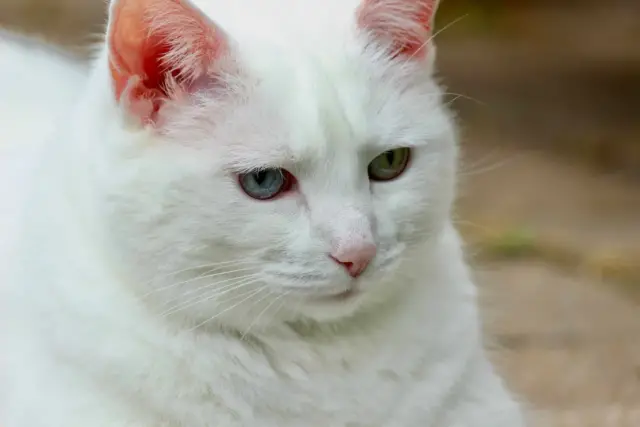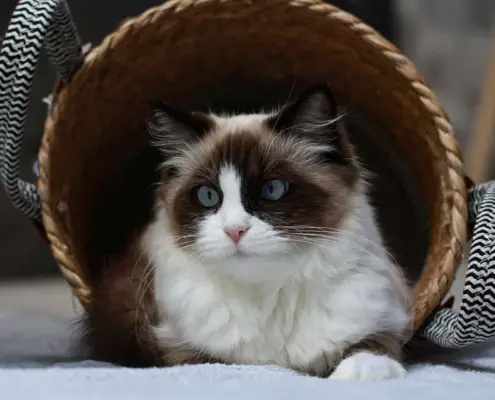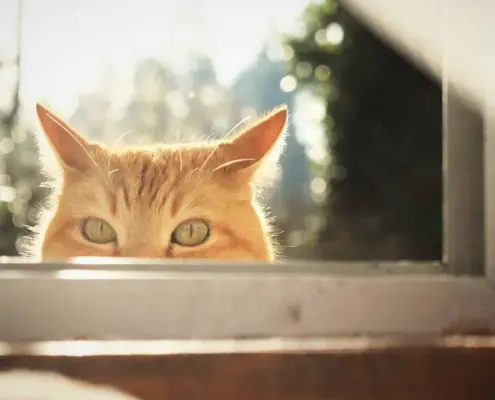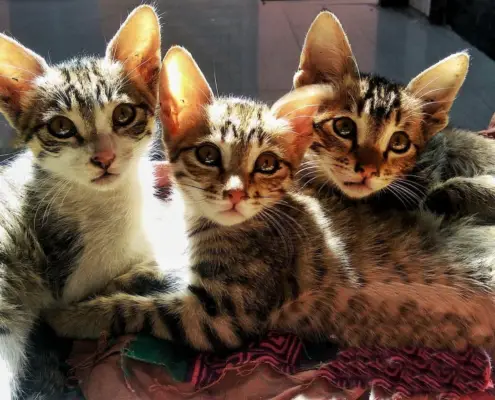
Cats are known for their love of napping, playing with toys, and chasing laser pointers. However, many cat owners have also observed that their feline companions seem to enjoy music. Whether it’s classical, jazz, or pop, cats often exhibit a positive response when music is played in their presence. But why do cats like music? In this article, we will explore the science behind this harmonious connection between cats and music.
The connection between cats and music
Cats and music have been linked throughout history. The ancient Egyptians, who were known for their reverence of cats, depicted their feline companions playing musical instruments in their artwork. In more recent times, many cat owners have shared videos of their cats enjoying music, whether it’s listening intently to a piano concerto or swaying their heads to a catchy tune.
While cats may not be able to appreciate music in the same way that humans do, there is no denying that they have a connection to it. Many cats have been observed reacting positively to music, whether it’s by purring, kneading, or simply relaxing. This connection between cats and music has led researchers to investigate the science behind it.
The science behind why cats enjoy music
The science behind why cats enjoy music is still being studied, but there are several theories that have been proposed. One theory is that cats are able to pick up on the rhythm and melody of music, which can have a calming effect on them. Cats are known for their sensitivity to sound, and it’s possible that music provides them with a sense of comfort and security.
Another theory is that cats enjoy music because it reminds them of the sounds they heard as kittens. Kittens are exposed to a variety of sounds when they are young, including the sound of their mother’s purring. This may explain why many cats seem to enjoy music that has a similar rhythm or tone to purring.
Studying feline responses to music
To better understand why cats enjoy music, researchers have conducted studies to observe feline responses to different types of music. In one study, researchers played classical music for a group of cats and observed their behavior. They found that the cats became more relaxed and less agitated when the music was playing. In another study, researchers played heavy metal music for a group of cats and observed that the cats became more agitated and less relaxed.
These studies suggest that the type of music that cats enjoy may be influenced by their individual preferences and experiences. It’s possible that cats, like humans, have their own unique taste in music.
How music affects cats’ behavior and mood
Music can have a profound effect on cats’ behavior and mood. Many cats become more relaxed and calm when music is playing, while others may become more energetic and playful. The type of music that cats enjoy can also influence their behavior. For example, classical music may have a calming effect on cats, while upbeat music may make them more playful.
In addition to affecting cats’ behavior and mood, music can also have a physiological effect on them. Studies have shown that music can lower cats’ heart rates and reduce their stress levels. This makes music therapy a potential treatment option for cats with anxiety or other behavioral issues.
Factors that influence cats’ preference for certain types of music
There are several factors that may influence cats’ preference for certain types of music. One of these factors is the rhythm of the music. Cats may be drawn to music with a slower, more rhythmic beat, as it may remind them of the sound of their mother’s purring.
Another factor is the tone of the music. Cats may be more likely to enjoy music with a soft, gentle tone, as it may be more reminiscent of the sounds they heard as kittens. The volume of the music may also be a factor, as cats may be more sensitive to loud music.
Tips for creating a cat-friendly music playlist
If you want to create a cat-friendly music playlist, there are a few things to keep in mind. First, consider the type of music that your cat seems to enjoy. If your cat seems to relax when you play classical music, consider adding more classical music to your playlist. If your cat seems to prefer pop music, try adding some upbeat songs to your playlist.
It’s also important to consider the volume of the music. Make sure that the music is not too loud, as this can be stressful for cats. Finally, consider the length of the playlist. Cats may become bored if they hear the same songs over and over again, so it’s a good idea to switch up the playlist every once in a while.
The calming effect of music on cats
One of the benefits of playing music for cats is its calming effect. Cats can become stressed or anxious for a variety of reasons, such as changes in their environment or routine. Playing calming music can help to reduce their stress levels and promote relaxation.
Music therapy is becoming an increasingly popular treatment option for cats with anxiety or other behavioral issues. In music therapy, cats are exposed to calming music in a controlled environment. This can help them to feel more relaxed and can improve their overall well-being.
Music therapy for cats
Music therapy for cats is a relatively new field, but it is gaining popularity among cat owners and veterinarians. In music therapy, cats are exposed to calming music in a controlled environment. This can help to reduce their stress levels and improve their overall well-being.
Music therapy can be used to treat a variety of behavioral issues in cats, such as anxiety, aggression, and depression. It can also be used to help cats recover from illness or injury. While more research is needed to fully understand the benefits of music therapy for cats, many cat owners and veterinarians have reported positive results.
Exploring the different genres of music that cats enjoy
While cats may not have the same musical preferences as humans, they do seem to have a connection to music. Many cats have been observed reacting positively to a variety of genres, from classical to pop to heavy metal.
It’s important to note that cats may have individual preferences when it comes to music. Some cats may prefer slower, more calming music, while others may enjoy upbeat, energetic music. The key is to observe your cat’s behavior and tailor your music choices to their individual preferences.
Conclusion
The connection between cats and music is a fascinating topic that has been studied by researchers for many years. While we may never fully understand why cats enjoy music, we do know that it can have a positive effect on their behavior and mood. Whether you’re playing music to help your cat relax or simply to enjoy some quality time together, there is no denying the harmonious connection between cats and music.
If you enjoyed my article, I would appreciate you sharing it with your network.

Sima Ndlebe
Sima writes for CatBuzz. He is interested in Cats, Health and Fitness, and Entrepreneurship.
Published: 30 October 2023




